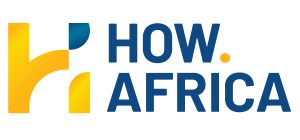Steps to acquire KEBS Standardisation Mark PERMIT
STEPS TO OBTAIN A KEBS STANDARDIZATION MARK PERMIT – PRODUCT CERTIFICATION PROCESS
Step 1: Application Process
- Complete and submit two copies of the Standardization Mark Application Form (STA 1).
- Complete and submit the Initial Factory Assessment Form (STA 10) (for new applicants only).
- Complete and submit two copies of the Standards Levy Notification Form (SL1).
- Provide a copy of the company registration form (CR12 for Ltd Companies) or evidence of registration for CBOS, Cooperative Societies, Self-Help Groups, etc.
- Pay the required product certification fees.
- Obtain the relevant product standards (specifications and sector codes of practice). Note: No product samples are required at the time of application. You can obtain the STA1, STA10, and SL1 forms at the nearest KEBS office or download them from the KEBS website.
Step 2: Assessment Process
- KEBS quality assurance officers will visit your production facility to: a. Carry out an industrial inspection. b. Draw samples for analysis. c. Discuss and agree on a scheme of supervision and control.
Step 3: Evaluation
- Samples are analyzed at KEBS laboratories or other accredited/designated laboratories to check compliance with Kenyan standards or approved specifications.
- If the samples comply and the inspection officer’s report indicates compliance with codes of practice, a recommendation is made for the issuance of a permit to use the standardization mark to the Permit Standardization Committee (PSC).
- If the PSC confirms that all requirements have been met, a permit is issued.
- If the samples fail to comply in the first instance, corrective action is reviewed for appropriateness, and retesting of parameters not complied with is done free of charge. If the product complies, a permit to use the standardization mark is issued.
- If the samples fail to comply in the second instance and subsequent tests, testing will be carried out at the expense of the manufacturer.
- If nonconformities are identified at the point of inspection, the manufacturer has the responsibility to undertake corrective action and inform KEBS to confirm the actions taken.
Certification Fees Schedule
The standardization mark (S-Mark) fee schedule is as follows:
- Turnover over Kshs. 500,000 per annum and/or a group operating under a central point (e.g., NGOs whose quality control activities can be traced to the central body) to pay per applicant or group:
- All large firms: Kshs. 20,000 for the firm plus Kshs. 7,500 per product/brand.
- Turnover over between Kshs. 200,000 and Kshs. 500,000 per annum:
- Medium enterprises: Kshs. 10,000 for three products and Kshs. 5,000 for any extra product.
- Turnover over below Kshs. 200,000 per annum:
- Jua kali and small enterprises: Kshs. 5,000 for three products and Kshs. 5,000 for any extra product.
Note:
- All payments for standardization mark application shall be made at the time of application.
- For any change request on a permit, the client shall pay Ksh. 1000 upon evaluation, and change is granted.
Assessment Criteria
Evidence of quality control on:
- Incoming raw material
- In-process controls
- Finished products
- Product labeling
- Handling of complaints
- Plant housekeeping
- Environmental considerations
Notes:
Alcoholic beverage manufacturers/dealers, Animal feed millers, Fortified maize /wheat millers, Milk pasteurizer bottlers, Containerized drinking water and all fall under category 2(i) and 2(iv)above.
Steps to acquire KEBS Standardisation Mark PERMIT
Advertisement











